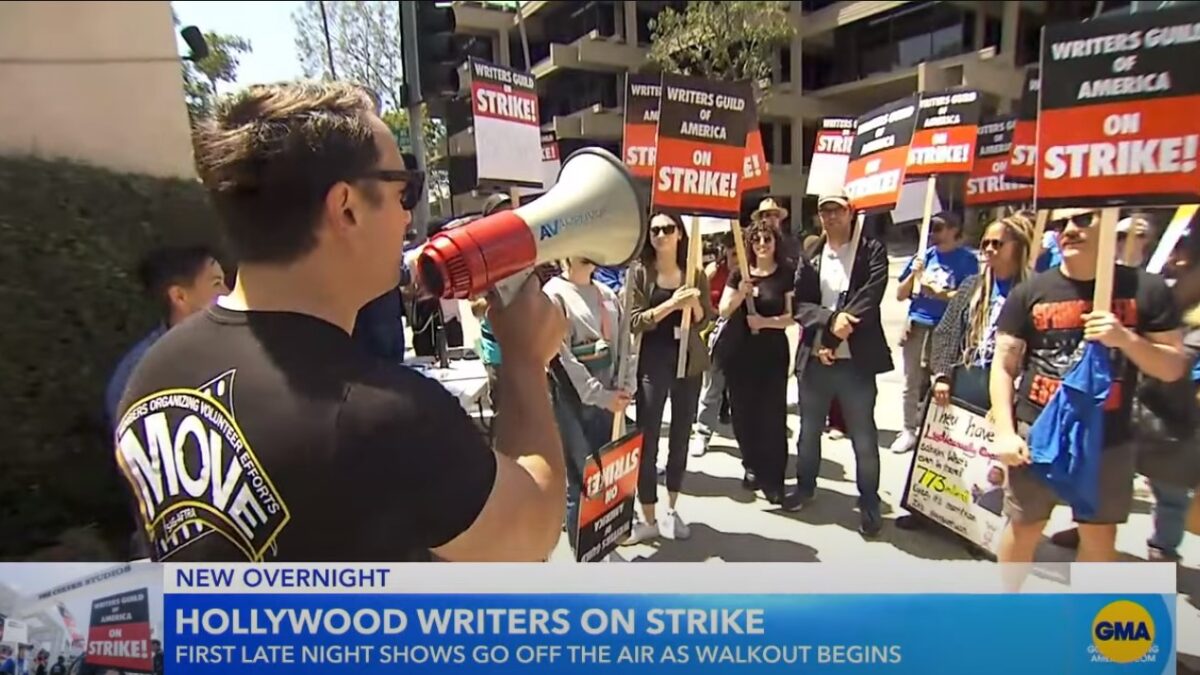
Mark Wahlberg and Michelle Williams starred in a feature film together this year, “All the Money in the World,” which is based on the true story of a 1973 kidnapping and directed by Ridley Scott. The film earned Williams a Golden Globe nomination.
There was only one problem. The film also starred Kevin Spacey, an award-winning actor but also an accused molester. In his attempts to get the film out with a clear conscience in the age of #metoo and in the face of credible accusations against Spacey, Scott purged Spacey from the film, and replaced him with Christopher Plummer. Scott was lauded for the move but had to do reshoots as a result.
Enter Scandal No. 2. Williams and Wahlberg both agreed to do more work on the film, but not for the same terms. The two stars had reportedly already been paid below their normal rate for the movie, and Wahlberg was not content to come back for union minimum. Williams, on the other hand, was under the impression everyone was doing their part for minimal pay to make the project work, so she accepted a per diem of $80 for an extra 10 days of work — a total of about $1000 — whereas Wahlberg got $1.5 million.
Hollywood is outraged.
This is so messed up that it is almost hard to believe. Almost. This is how this business works. I wonder if the studio or Wahlberg will do something to make the situation less insane. https://t.co/RsunBlOeCk
— Judd Apatow (@JuddApatow) January 10, 2018
Please go see Michelle's performance in All The Money in The World. She's a brilliant Oscar nominated Golden Globe winning actress. She has been in the industry for 20 yrs. She deserves more than 1% of her male costar' s salary. https://t.co/HIniew6lf7
— Jessica Chastain (@jes_chastain) January 10, 2018
Chastain is right. She is worth more than that, but she agreed to work for a pittance. And that’s part of the problem.
I’m sympathetic to Williams’ urges, here. She’s in a film she believes in. She wants to help it succeed despite the misdeeds of her male coworker, and therefore decides to take a hit for the “cause.” Unfortunately, the “cause” is not just art, as Sonny Bunch points out, but a bunch of rich guys attempting to recoup their cash because they cast a pretty well-known predator in a role and had the misfortune of that coming to light during late stages of filmmaking. Oops.
Here’s what Williams said about flying overseas over Thanksgiving week to work for free for 10 days away from her daughter:
“I said I’d be wherever they needed me, whenever they needed me. And they could have my salary, they could have my holiday, whatever they wanted. Because I appreciated so much that they were making this massive effort.”
As an employee, you have two choices. Do you make your employers pay for the mistake they made casting Spacey, which is no fault of your own, or do you consent to be a team player (possibly a sucker) and give your work away for nearly free? They need you to finish the film, after all, and you’ve done nothing wrong. In fact, you’ve already been a team player by taking less than your market value for a project you like.
Walhberg made the former decision. Williams made the latter.
Now, it’s certainly a big issue, because she’s a successful actress getting paid far less than her successful male counterpart. But she’s also a symbol of what causes some of the pay gap, to the extent it does exist (and it’s far more nuanced than the simple 77-cents talking point).
If you want to be paid for your job, you need to insist on being paid for your job. People will take every opportunity to pay you nothing if you’re willing to do your work for free, be you man or woman. Women give people that opportunity more often than men do. I’m no one, and you couldn’t get me to work for 10 days overseas over a holiday for $1,000. Not happening. As a fan from way back in the “Dawson’s Creek” days, I’m somewhat mystified Williams was on board for it.
Sallie Krawcheck, one of Wall Street’s few women CEOs, has pointed out the self-inflicted wounds women get by accepting the idea there’s no money in the pot for them:
“What I’ve found over time is that when it would come to bonus time or raise time, I would hear from the gentlemen, “I want to make X.” I don’t think I ever heard from a woman who worked for me, “I want to make X.” Ever. And research shows, men ask and women don’t. … Say we’ve got two employees, Joe and Joanne. They’re both set to make $5 in bonus. Joe comes into my office and says, “Hey, Sallie, I’ve had a great year. I’d like to make $10 this year.”
After Joe leaves, I call the head of HR, and we sort of say, “Can you believe this? Joe wants to make $10, he’s in for $5, ha ha ha.” But we don’t want to lose him. So we put him in for $7. And that means Joanne isn’t going to get the $5 we had planned. She’s going to get $3. Because the bonus pool doesn’t go up. She sees her bonus actually reduced.”
This isn’t just anecdotal. Women are about four times less likely to ask for raises than men, according to research that prompted Carnegie Mellon economist Linda Babcock to write two books on the subject and study tactics for getting women to take a harder line, such as putting on negotiating classes for young women.
“I tell my graduate students that by not negotiating their job at the beginning of their career, they’re leaving anywhere between $1 million and $1.5 million on the table in lost earnings over their lifetime,” Babcock told NPR in 2011.
When everyone but Wahlberg agreed to come back for chicken scratch to the ironically titled “All the Money in the World,” his representation rightly pressed his advantage. The filmmakers had everyone they needed, for little to no money, except him. Back up that Brinks truck.
Williams could have done the same. Would she get labeled “hard to work with?” Maybe, though simply asking to get paid more than a per diem for your very valuable skills isn’t exactly out of line. I certainly think being tough in negotiations is harder for women in an industry as demonstrably sexist as Hollywood, but why make it so easy for them?
It’s worth pointing out Wahlberg’s not getting a reputation boost for his ask, either. He played hardball and he’s deemed all kinds of problematic for it, but he’s got $1.5 million to console himself with. The two actors are represented by the same agency and it seems Williams may have been ill-served by her agent, or lied to about what everyone else had agreed to. Do I think her agents and the guys making the movie are great people? No, but it’s hard to argue that when an A-list actress agrees to work for nothing, you shouldn’t take her up on it. I have a hard time believing they wouldn’t have taken Wahlberg up on it, too.
Too often, women are also sold a bill of goods about how to solve this problem. Congress will fix it, activists say. Lily Ledbetter fixed it but not before the 1963 Equal Pay Act fixed it. And yet, here we are. There are injustices in the world. Life isn’t fair. And when you can remedy a small part of that by being a little more of a hard-ass, you should. It’s a lot quicker and more effective than an act of Congress and it normalizes being an assertive woman in the workplace. Ask for more, get a negotiating coach. Don’t work for nothing. Don’t assume everyone else is. What’s the word for that? Empowerment.
Hollywood has very real problems with sexism, but a powerful actress agreeing to not get paid isn’t at the top of the list, though it’s a good lesson. Neither Wahlberg nor Williams was the predator, and neither should have paid the price for Spacey’s misconduct. Williams agreed to. Wahlberg didn’t. His was the right call.









